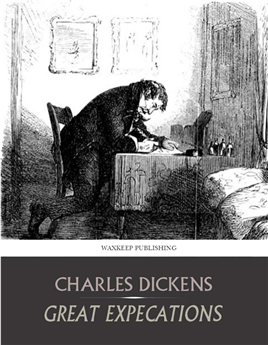 Best Book of the Week!
Best Book of the Week!
Jack Maggs belongs in a growing genre of fiction that reinterprets a classic novel. In this case, the novel works in two ways: as another look at Great Expectations from the point of view of a different character and as a loose work of metafiction.
Jack Maggs is a convict illegally returned from Australia when he arrives at the door of a gentleman named Henry Phipps, only to find no one at home. The maid from a neighboring house, Mercy Larkin, thinks he has come to the wrong house as an applicant for a footman position in her own. Maggs decides to take the position so that he can watch the neighboring house for Phipps’ return.
Maggs’ employer is Percy Buckle, once a grocer, who inherited some money and fancies himself a patron of the arts. That night Buckle entertains at dinner a famous author, Tobias Oates, who dabbles in mesmerism. During dinner, Maggs is attacked by a horrible pain in his face, which makes him collapse. Oates hypnotizes him in an attempt to cure him but also gets him to tell some of his secrets.
Soon the two are locked in a struggle. Oates has mentioned knowing of a thief-taker, whom Maggs wants to employ to find Phipps. Oates only agrees to give him the name in exchange for two weeks of allowing him to mesmerize Maggs. Oates, who has realized quickly that Maggs is a fugitive, wants to learn about the criminal mind for an upcoming book. But Maggs becomes dangerous when he learns Oates has found out his secrets.
This tale is really gripping and ultimately suspenseful. It is also very Dickensian in nature—in its storytelling, its empathy for the poor, its dark London atmosphere, its character names, and its rather convoluted but satisfying plot. Our sympathy is all for Maggs, who has built up in his mind a fantasy about Phipps, whom he educated and made a gentleman, and who he does not realize is hiding from him in dread.
Oates is meant to be Dickens himself, and he is depicted less sympathetically. He misuses Maggs in service of his writing, but he is not much more responsible toward members of his own family.
Although Carey won a Booker prize for Oscar and Lucinda, I think Jack Maggs is much more powerful.

